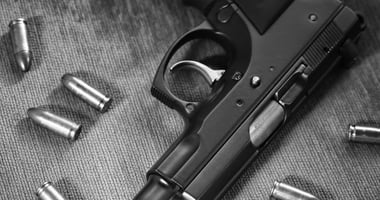Despite recommendations to limit access to guns for people with risk factors for suicide,...
Multiple Steps Are Needed to Reduce U.S. Firearm Suicides
 |
While studies in other countries have revealed that general restrictions against the ownership of guns lower firearm suicide rates, such legislation has “proven impossible to duplicate in the United States,” Mann and his colleague, Christina Michel, B.A., wrote online today in AJP in Advance. Instead, gun regulation efforts might better focus on restricting firearm access to people deemed at risk of harming themselves or others.
However, as the authors noted, “[L]ess than 10 percent of the firearms used in suicides are purchased within two weeks of the suicide and the median interval between handgun purchase and suicide by the victim or another family member is 11 years, with the greatest risk in the first year after purchase.”
Mann and Michel described several ways gun violence restraining orders (which allow family members, significant others, and law enforcement personnel to formally request confiscation of firearms belonging to a person who may hurt himself or others), safer storage, smart-gun technology (which limits firearm access to the owner or permitted users), and firearm safety education campaigns for gun owners may help to lower firearm suicide rates.
“All such initiatives must be accompanied by systematic evaluation of their effectiveness,” wrote Mann and Michel. “Ultimately, such program evaluation and lifting of the ban on federal funding of research on firearm violence will help improve efforts to reduce firearm suicide mortality.”
For related information, see the Psychiatric News column “Psychiatrists Have a Role to Play in Latest Gun Law Debates,” by APA President Maria A. Oquendo, M.D., and the Psychiatric News article “Violence Risk, Not Mental Illness, Should Guide Gun Access.”
(Image: iStock/DmyTo )





